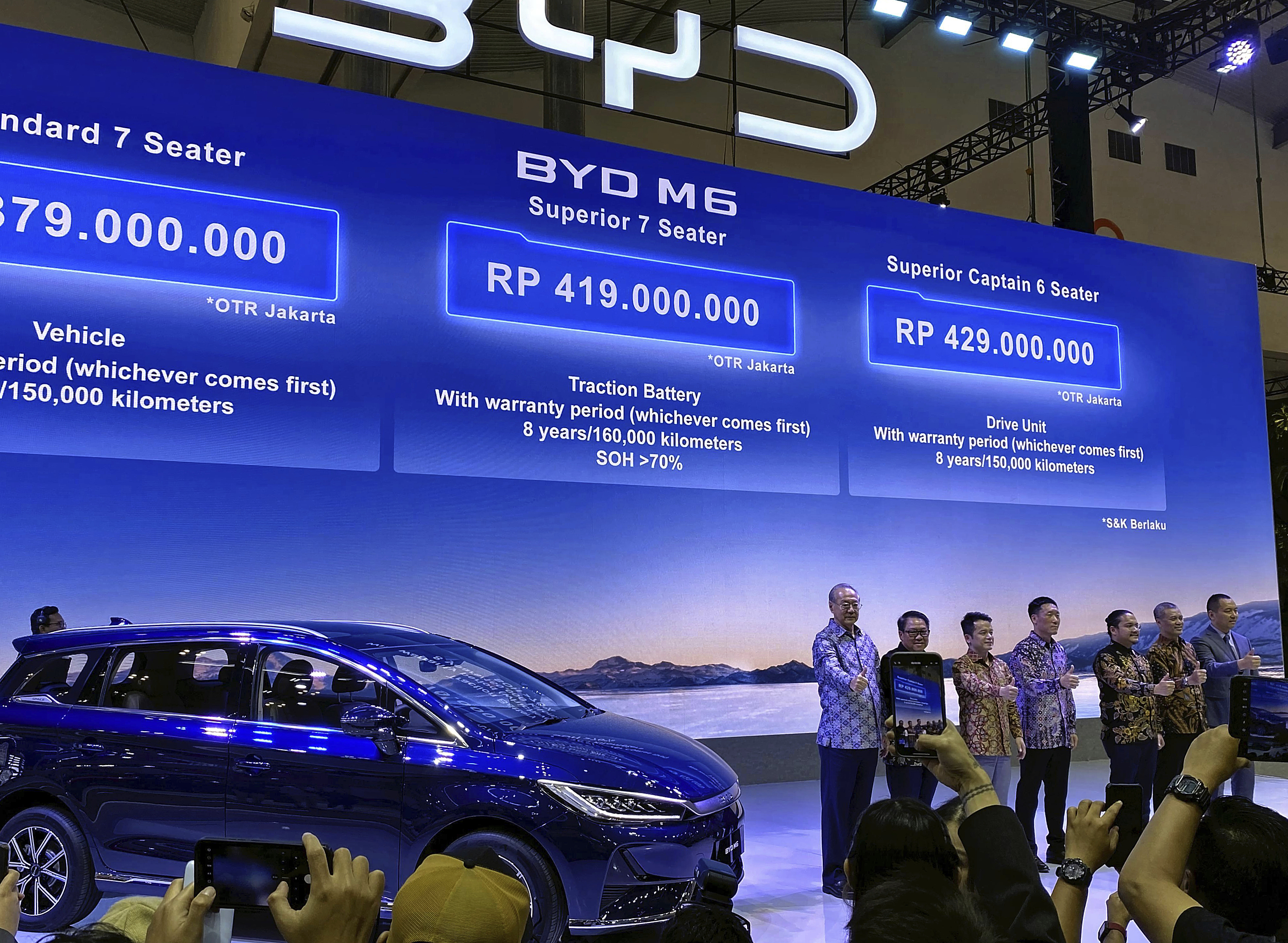China's EV Production Is Here to Stay

China's leading EV company BYD unveils new model during the Indonesia International Auto Show in the suburbs of Jakarta, Indonesia on July 17, 2024. (PHOTO: VCG)
By TANG Zhexiao
After a period of debate slamming China's overcapacity, some Western media have begun to realize the error of their ways.
According to The Economist, besides being the world's factory and a giant market for the world's companies, China's brainpower and its innovative regulatory regime are crucial ingredients of their companies' global success.
"Chinese electric vehicles (EVs) are more of an opportunity than a threat," said an opinion piece in the Financial Times recently, adding that Europe's EV goals are implausible without welcoming China's ability to produce cost-effective cars.
Maciej Mazur, president of the European Association for Electromobility echoed this view. During a visit to the European Chamber of Commerce in China on July 23, he said that China's EV industry and other new energy industries play an indispensable role in the EU's goal of banning the sale of fuel vehicles by 2035 and achieving net zero greenhouse gas emissions by 2050.
Higher tariffs will lead to higher prices for EVs in Europe, which is not good for European consumers, and will also lead to tensions in Sino-European relations and European automakers, said Mazur, adding that Chinese automakers, battery companies and related industries will benefit European consumers and Europe's green transformation.
Unfair subsidies and dumping are the labels the developed countries put on China's industries, based on their inertial thinking.
Türkiye's trade policy for Chinese EVs served as a good example. In March 2023, Türkiye announced that it would impose an additional 40 percent tariff on Chinese vehicle imports, raising the total tariff to 50 percent to protect its domestic EV industry and address trade imbalances.
On June 8, 2024, the policy was expanded to include all Chinese imported vehicles (including auto parts), with a minimum tariff of 7,000 USD, which was set to take effect on July 7.
However, just a month later, a Türkiye presidential decree announced a reduction in additional tariffs on EVs. According to the decree, automobile manufacturers that invest and set up factories in Türkiye will enjoy investment incentive policies and do not need to pay the previously stipulated 40 percent additional tariff, but only a 10 percent tariff.
To some extent, Türkiye's move on Chinese electric cars reflects trends in global trade. Many countries are re-evaluating their trade policies and cooperation with Chinese EV manufacturers. Chery Automobile signed a joint venture agreement with Spain's EV Motors to open a manufacturing base in Catalonia, while China's largest EV company BYD will establish its first electric car production base in Hungary.
Statistics from the Thai Automotive Industry Association showed the total registration of Thailand's EVs in 2023 was about 76,000, accounting for 12 percent of the total vehicle registrations, of which eight of the top 10 are Chinese brands.
Chinese EVs have continued to sell well in the Southeast Asian market, not only contributing to energy conservation and carbon reduction in local transportation, but also helping the locals to continuously improve and enhance infrastructure construction, according to Qu Jizong, executive vice president of PT Chery Sales Indonesia.
The "green trend" Chinese EVs set in Southeast Asia demonstrates China's leading role in promoting global green energy technologies. As the Financial Times commented, "Western leaders will have to choose between their climate goals and their protectionism — and it would be better for everyone if it is protectionism that has to give."






